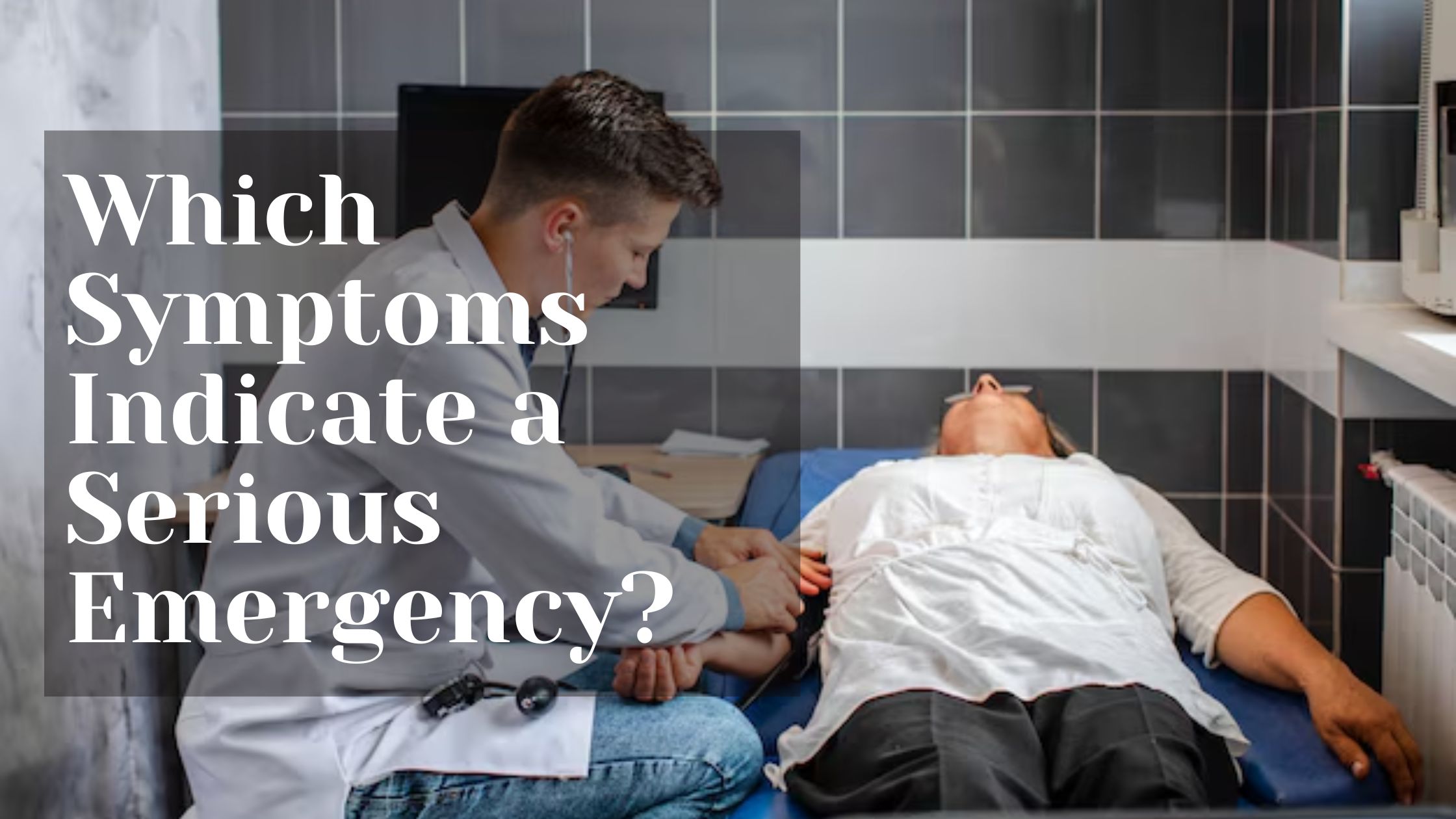
Recognizing symptoms that indicate a serious emergency can be crucial in preventing severe outcomes and saving lives. Immediate and appropriate action can make a significant difference in the effectiveness of medical treatment. Here’s a guide to identifying key symptoms that suggest a serious medical emergency:
Chest pain, especially when accompanied by shortness of breath, sweating, nausea, or pain radiating to the arm, neck, or jaw, could signal a heart attack. This condition demands immediate medical attention. Even if the pain is mild or intermittent, it’s better to err on the side of caution and seek professional evaluation.
Difficulty breathing or shortness of breath that comes on suddenly can be a sign of several serious conditions, including asthma attacks, pulmonary embolism, or chronic obstructive pulmonary disease (COPD) exacerbations. If you experience extreme difficulty in breathing or wheezing, it’s crucial to seek emergency help immediately.
Heavy bleeding from a wound that doesn’t stop with pressure or tourniquet application, or internal bleeding signs like coughing up blood or passing blood in urine or stools, are serious indicators. Uncontrolled bleeding can lead to shock and requires prompt medical intervention.
A sudden loss of strength or feeling in one side of the body, especially if accompanied by difficulty speaking, understanding speech, or confusion, can be symptoms of a stroke. Time is critical in stroke cases; immediate medical treatment can significantly impact recovery outcomes.
A sudden, intense headache, often described as the “worst headache of your life,” could indicate a brain aneurysm or a severe migraine. If accompanied by visual disturbances, nausea, or vomiting, seek emergency medical care.

Fainting or loss of consciousness, especially if it occurs without a clear reason or is accompanied by confusion upon waking, warrants immediate evaluation. This could be due to a variety of serious conditions, including heart problems, seizures, or low blood sugar.
Severe and persistent vomiting or diarrhea can lead to dehydration and electrolyte imbalances, which may be life-threatening if not managed promptly. This is particularly urgent if it’s accompanied by symptoms like fever, severe abdominal pain, or signs of dehydration (e.g., dry mouth, dark urine).
Intense abdominal pain, especially if sudden and severe, could indicate conditions such as appendicitis, pancreatitis, or a ruptured organ. If the pain is persistent and accompanied by other symptoms like fever, vomiting, or difficulty moving, seek emergency care.
Sudden confusion, disorientation, or significant changes in mental status can be indicative of serious conditions such as stroke, severe infections, or metabolic imbalances. Immediate medical assessment is essential to determine the underlying cause and appropriate treatment.
A high fever in infants (especially those under three months) or young children, particularly when accompanied by symptoms like lethargy, irritability, or difficulty breathing, requires immediate medical attention. High fevers can signal serious infections or other medical conditions.
Understanding and recognizing these symptoms can be crucial in determining when to seek emergency medical help. In any of these scenarios, acting quickly and contacting emergency services can significantly improve the chances of effective treatment and positive outcomes. Always trust your instincts—if something feels seriously wrong, don’t hesitate to get professional medical assistance.